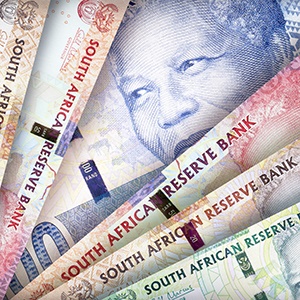
Government announced a R50 billion stimulus package several weeks ago. Many have asked whether – in view of its size relative to the size of the economy – the package is large enough. It is not so much the quantum of President Cyril Ramaphosa’s Economic Stimulus and Recovery Plan for South Africa that international and domestic investors should take note of, but instead what it signals. The package is a clear demonstration that government recognises the importance of partnerships between the private and the public sectors in driving higher rates of investment and thus GDP growth.
The stimulus plan is significant because it demonstrates an appreciation by President Ramaphosa’s economic team that faster GDP growth is front and centre of SA’s success in creating opportunities for new businesses, expansions of existing businesses and job opportunities work-seekers. Faster GDP growth will also help SA push back the frontiers of poverty while simultaneously enabling government to expand the tax base and stabilise its fiscal position.
For business this is indeed a welcome move.
South African’s GDP growth has been decelerating over the past decade. The last four years, in particular, saw population growth surpassing GDP growth. Consequently, unemployment remained high, per capita income fell, and poverty ticked up. To turn the situation around - to spur growth, create jobs and reduce poverty and unemployment, we need annual growth rates in excess of 3,5%, at least. The only way to achieve this on a sustained basis is through harnessing investment both public and private. SA needs investment rates of between 20-30% of GDP to propel growth above 3.5 per cent a year for several years.
The Economic Stimulus and Recovery Plan is a clear demonstration that government is aware of the factors that will contribute to growing the economy including not only promoting consumptive growth, but also shifting its focus instead towards investment growth.
The plan outlines measures to make it easier for investors to invest in South Africa and includes setting up an Infrastructure Fund to consolidate government’s R400bn infrastructure budget, prioritising roads, water infrastructure, schools, human settlements and public transport. But most importantly, the plan recognises that in some cases government simply needs to remove impediments to private sector investment. For instance, the plan emphasis the need to remove policy uncertainty where it exists and is impacting negatively on confidence and investment.
Encouragingly, investors have responded positively. Many have committed capital and more continue to show interest in establishing a presence on our shores.
Investors continue to appreciate some of the strengths of SA as an investment destination: our financial system and capital markets is one of the most sophisticated and efficiently run on the continent and in the world. The banking sector continues to be well capitalised and our financial markets are relatively deep. Financial services sector regulation is favourable for foreign companies intending to establish their African headquarters in South Africa. South Africa has done a good job at offering investors broad policy consistency and a stable and supportive investor environment. These have withstood the test of several global crises as well as local economic challenges.
To investors, South Africa is not just a country of 57 million people, it also provides access to a market of more than 375 million middle class consumers across the continent. Africa is a continent with favourable demographics, rising incomes and whose potential remains largely untapped.
Of course, this is not to say that South Africa does not have its challenges which must be addressed. There are aspects of our education system that need urgent improvement. But in recognising this, there are pockets of the public-schooling system which produce good grades. Tertiary education institutions continue to provide solid, world-class research – necessary to support both business and innovation. This is also an important consideration for foreign investors and companies, as this reduces the reliance on imported skills.
Investment security is important, but physical security is also of paramount importance. High crime rates need a concerted response. The issue of property rights has also been elevated as an issue that needs to be resolved. But it is more than likely that the South African spirit will prevail, and an elegant solution, which is consistent with the letter and spirit of the country’s constitution will be reached on the land reform issue.
We should not lose sight of the fact that international investors have played an important role in the economic success of the country following the democratisation process. Investors, after all, buy future growth – and once capital is here, it tends to stay.
Some of the most attractive investment opportunities for these investors lie in sectors that aim to address the country’s infrastructure deficit, including renewable energy, transport, as well as Information and Communications Technology (ICT).
The energy sector – especially renewables – has proven a magnet for investment. Round after round of the Renewable Energy Independent Power Producer Procurement Programme (REIPPPP) have been fully subscribed, demonstrating that not only is there interest by foreign investors, but that there is a willingness to commit to investments with long return horizons.
The recently updated Integrated Resource Plan will set the path for the future energy mix in South Africa. Not only will this ensure the diversification of the country’s energy supply to include renewable energy sources, it will also provide South Africans with sustainable, secure and affordable sources of energy for the future.
In addition, South Africa’s infrastructure deficit offers huge potential for foreign investors. The ICT sector, for example, requires investment to shift the country from 4G to 5G as the country undergoes unprecedented digitisation and broad-band penetration begins to reach all classes of society in the country. Water and sanitation, human settlements, transport and education all require massive investment if the country’s growth targets are to be met.
Compared with other emerging markets, it’s not difficult to differentiate South Africa. Whilst we cannot deny that our country has experienced bumps, twists and turns, there is plenty of evidence to show that our country is a resilient, stable, maturing democracy that stands apart from other emerging markets.
Regular, free and fair elections that have seen peaceful political transition take place within the framework of the law. This has been backed by consistency in terms of macro-economic management – sound fiscal policy under Treasury and consistent monetary policy managed under the steady hand of the independent South African Reserve Bank.
Our legal system is strong and presents those that invest in our country an opportunity to seek legal recourse in court if necessary. Our courts remain known for taking decisions without fear or favour.
The fact that South Africa has been able to finance elevated deficits at a reasonable cost for a considerable amount of time without yields rising, is largely due to the openness and depth of our capital markets. Government remains committed to policy regulation that has consistently moved towards exchange control relaxation which is vital for attracting foreign capital.
The Economic and Stimulus Recovery Plan shows government is intent on removing roadblocks to investment. The domestic financial sector now needs to step up to the plate to as an effective market maker and source liquidity to turn this plan into reality.
South Africa’s banking system will have to provide the systems and networks to facilitate basic transactions, and also assist investors looking for guidance on the broader economic, legal and political landscape of the country as well as provide value-based services across research, hedging and settlement capability.
Both the public and private sector have a role to play in unlocking South Africa’s potential and turning government’s recovery plan into reality. It is up to all of us to collectively invest in our country’s future.
Lungisa Fuzile is the CEO of Standard Bank South Africa and is representing Standard Bank at the South Africa Tomorrow Conference currently being held in New York.
Read more from Standard Bank here.




 Publications
Publications
 Partners
Partners











